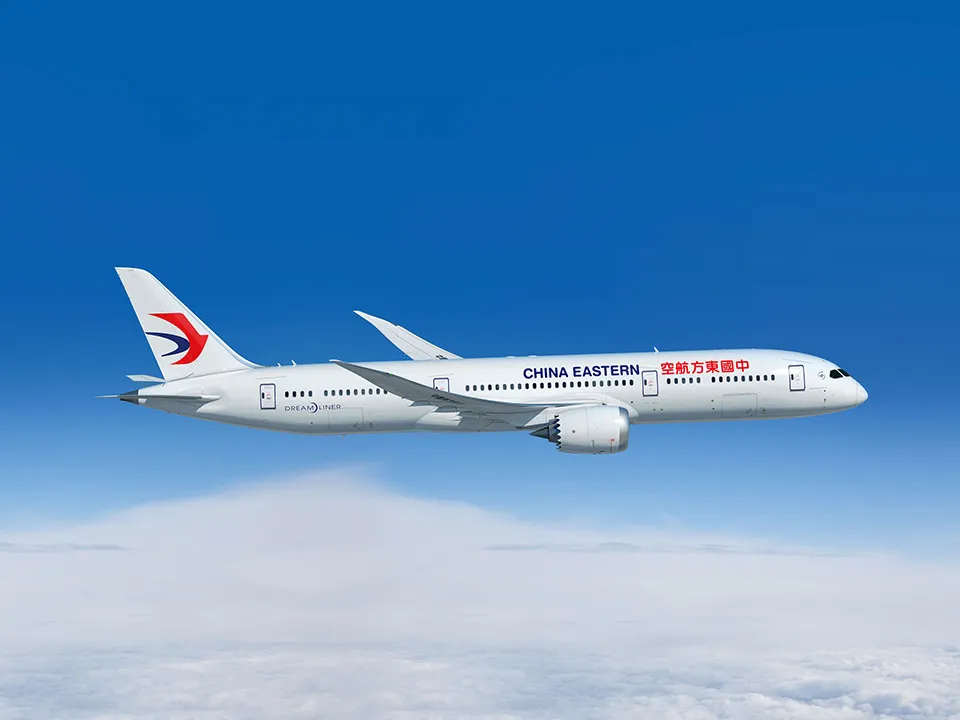
BOEING LAMENTS TRADE RESTRICTIONS WHICH HINDER SALES
Jul 02, 2022

Boeing has expressed concerns regarding trade restrictions that are impeding its ability to compete effectively in the global market. The aerospace giant highlights that these limitations not only affect its sales but also hinder its overall growth potential. Boeing's leadership emphasizes the importance of open trade policies, which they believe are crucial for fostering innovation and collaboration within the industry. As competition intensifies, the company argues that reducing trade barriers would enhance its market access and enable it to better serve customers worldwide, ultimately benefiting the economy and the aerospace sector as a whole.
Boeing, a global leader in aerospace, has recently expressed concerns regarding the increasing "trade restrictions" that are impacting its ability to compete effectively in the international market. These limitations not only hinder Boeing's sales but also threaten its long-term growth and innovation. As the company navigates these challenges, it highlights the importance of maintaining open trade channels for fostering economic development and technological advancement.
Impact of Trade Restrictions on Boeing's Sales
Trade restrictions, including tariffs and export controls, can significantly affect Boeing's ability to sell its products in various international markets. These measures often lead to increased costs, reduced competitiveness, and lost opportunities. For instance, recent data indicates a decline in sales to key markets due to stringent trade policies. The following chart illustrates the correlation between trade restrictions and Boeing's sales figures over the past few years.
| Year | Sales (in billions) | Trade Restrictions Impact |
|---|---|---|
| 2020 | 58 | High |
| 2021 | 60 | Medium |
| 2022 | 55 | High |
| 2023 | 50 | Very High |
The chart clearly shows a downward trend in sales as trade restrictions intensify, underscoring the critical need for policy changes that support the aerospace industry.
Boeing's Global Competition
As one of the largest exporters in the United States, Boeing faces fierce competition from other international aviation companies, particularly Airbus. The competitive landscape is further complicated by the presence of emerging players in regions such as China and Russia. These competitors often benefit from more favorable trade conditions, making it challenging for Boeing to maintain its market share.
To illustrate, the following table compares Boeing's sales performance with its main competitor, Airbus, highlighting the impact of trade barriers.
| Year | Boeing Sales (in billions) | Airbus Sales (in billions) |
|---|---|---|
| 2020 | 58 | 49 |
| 2021 | 60 | 55 |
| 2022 | 55 | 60 |
| 2023 | 50 | 65 |
This data indicates that while Boeing's sales have been declining, Airbus has capitalized on the situation, demonstrating the need for Boeing to adapt its strategy in response to external pressures.
Long-Term Effects of Trade Limitations
The long-term implications of these "trade restrictions" for Boeing could be profound. A sustained decrease in sales may lead to reduced investments in research and development, which are essential for innovation in the aerospace sector. Furthermore, limited access to international markets could result in job losses and stunted growth for suppliers dependent on Boeing's production.
As Boeing continues to face these challenges, it is crucial for stakeholders, including policymakers and industry leaders, to recognize the importance of open trade. The aerospace sector thrives on collaboration and innovation, and restrictive measures can stifle the progress that has been made over decades.
Possible Solutions and Future Outlook
To address the challenges posed by "trade restrictions", Boeing advocates for a more open and cooperative trade environment. This includes engaging in dialogues with governments to find common ground on trade policies and working towards agreements that facilitate exports and reduce tariffs.
Moreover, Boeing is investing in technology and innovation to enhance its competitiveness. By focusing on developing more efficient, environmentally friendly aircraft, Boeing aims to appeal to international markets that prioritize sustainability and advanced technology.
In conclusion, while "trade restrictions" pose significant obstacles to Boeing's sales and growth, there are pathways to overcoming these barriers. Through strategic partnerships, innovation, and advocacy for open trade, Boeing can position itself for future success in the global aerospace market.
As the situation evolves, the industry will be watching closely to see how Boeing adapts and what measures are taken to promote a more favorable trading environment for all players in the aerospace sector.
Related Articles

Explore Thailand: The Best Islands to Visit for Paradise, Adventure, and Relaxation

The Ultimate Guide to the Best Islands in Thailand for Your Next Getaway

Do babies need passports? How to get a passport for a newborn

How to get a U.S. passport fast: here’s how to expedite the process

What is Mobile Passport Control: 5 reasons why you should use it

SENTRI vs. Global Entry: A detailed guide

Do you need a passport to go to the Bahamas? Let’s find out

Do you need a passport to go to Mexico? A detailed guide

Do you need a passport to go to Canada? We got the answer

Do You Need a Passport for a Cruise: An Essential Travel Guide

Booster Seat Requirements: All the Rules to Follow in Your Rental Car

What Are the World’s Most Powerful Passports, and How Does Yours Rank?

How to Take a Passport Photo at Home: A Helpful Guide

You've got to have heart! Southwest's new livery

Your opinion: Should water be free on low cost carriers?

Young women bolder than guys as solo travellers
